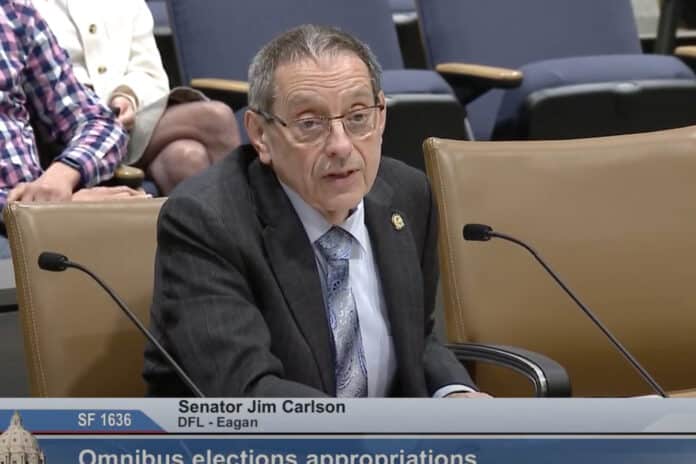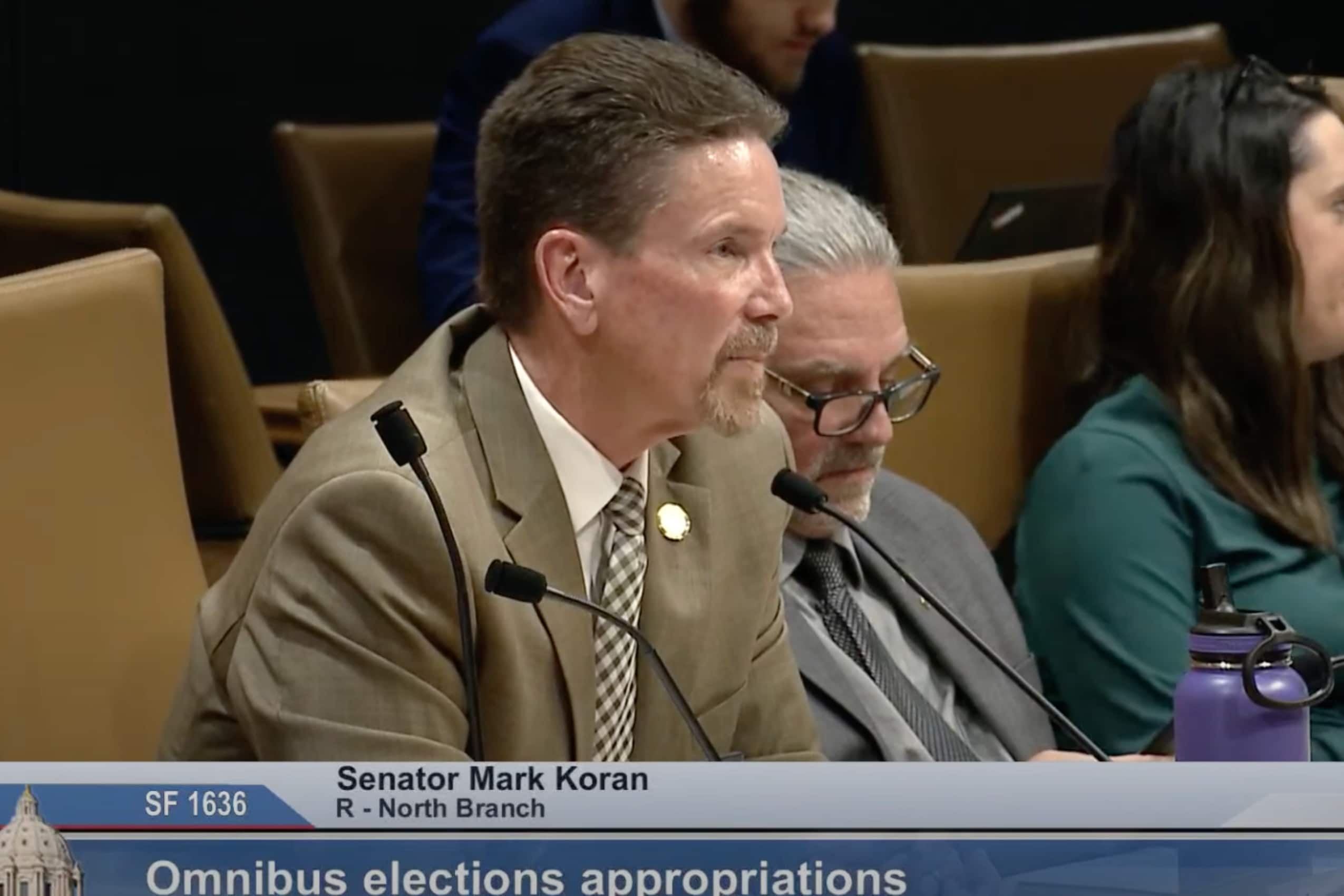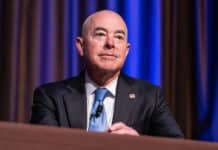
A well-funded push to make Minnesota a ranked choice voting state appears to have run out of steam — at least this session at the Minnesota Legislature.
On Monday, Sen. Jim Carlson, DFL-Eagan, told his colleagues in the Senate Elections Committee that a bill introduced last month that would implement ranked choice voting for statewide and legislative races by 2026 “is much more complicated than we originally thought.”
“After conversations with other stakeholders and senators it’s clear that additional work is still necessary” before several elements of the original bill, including a provision that would make it easier for all local governments to implement ranked choice voting, are ready to move forward, Carlson said.
“And we will need to spend more time on voter education and voter outreach in communities with lower voter turnout rates,” he added.
The conversations about RCV in the April 3 Senate Elections Committee hearing involved whether implementation of the election system where voters rank candidates by preference would be included in the Senate elections omnibus bill in any capacity. That came after both the Senate and House held hearings on proposed legislation that would make Minnesota the third RCV state in the nation.
Carlson added an amendment to the elections omnibus bill, SF1636, that would officially scale back momentum on the DFL’s push earlier this session to implement ranked choice voting.
The amended bill now contains provisions that provide voter outreach education grants to municipalities that already feature ranked choice voting and the creation of a task force that will study “voter-facing issues related to ranked choice voting.”
The amendment passed on a party-line vote, with Republicans on the committee unanimously voicing their opposition.
Sen. Mark Koran, R-North Branch, cited a new study on the subject released by the Humphrey Institute of Public Affairs at the University of Minnesota last week. The study, authored by political scientists Larry Jacobs and Penny Thomas, evaluates whether there is any evidence to the RCV proponents’ claims that it lessens political polarization and increases diversity in elected offices.
“[RCV] has been a proven failed experiment for the citizens of Minnesota,” said Koran. “We’ve been the guinea pigs for this, and they failed to prove their assertions even with the outside money that has been moved into this effort” to make Minnesota a ranked choice voting state, he added.

While the Senate omnibus elections bill contains the provision that would create a ranked choice voting task force, a similar elections omnibus bill that’s making its way through the House doesn’t contain any language related to statewide ranked choice voting implementation. That came after a House committee last month voted to move forward a stand-alone bill that would create a task force to study ranked choice voting.
Cities that utilize ranked choice voting in their elections include: Minneapolis, St. Paul, Minnetonka, St. Louis Park and Bloomington.
Carlson told senators in the April 3 hearing that the provision that would create a RCV task force came out of discussions RCV proponents had with a wide variety of stakeholders.
“[W]e had a lot of feedback that people didn’t know how to use ranked choice voting or it was not in their culture to vote for more than one person in an election,” Carlson said. “We want to make sure people are educated on how the ranked choice voting system works.”
Secretary of State Steve Simon has remained cautious in his public statements on whether he endorses making Minnesota a ranked choice voting state.
The ranked choice voting movement in Minnesota has been pushed for the last several years by FairVote Minnesota, which raised nearly $1 million in 2020 for campaigning and outreach activities to promote RCV. Some of FairVote Minnesota’s prominent donors include Kathryn Murdoch, daughter-in-law to media mogul Rupert Murdoch, and a former Enron executive who lives in Texas.
Hank Long
Hank Long is a journalism and communications professional whose writing career includes coverage of the Minnesota legislature, city and county governments and the commercial real estate industry. Hank received his undergraduate degree at the University of Minnesota, where he studied journalism, and his law degree at the University of St. Thomas. The Minnesota native lives in the Twin Cities with his wife and four children. His dream is to be around when the Vikings win the Super Bowl.














